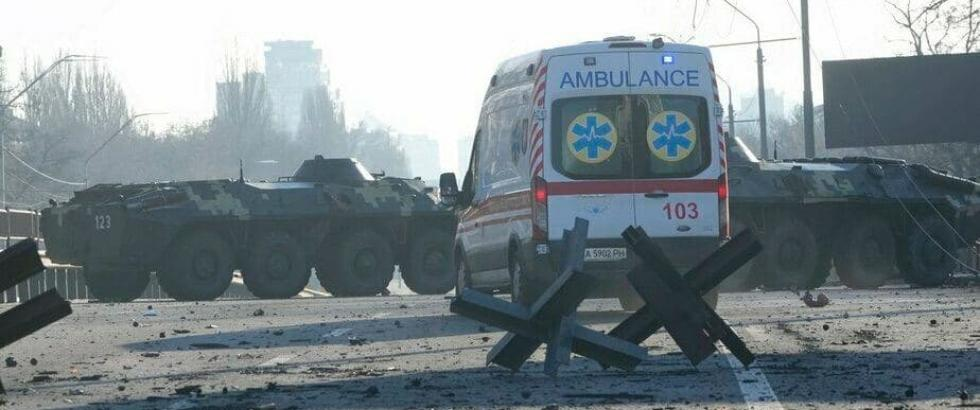Together with the “brother”
 The situation got worse
The situation got worse
In Putin’s wargames, Belarus is a Russian military-strategic platform, and Lukashenka is the role of a carpet clown, designed to play with hitches and pauses in the twists and turns of someone else’s fate. An experienced Belarusian politician and manipulator is trying to play on within tight constraints that he, himself, has created.

History suggests that if Russian troops arrive in a territory, they will not hurry to leave. Consequently, few were surprised when Russian troops failed to leave Belarus after completing the Union Resolve 2022 exercises. On Sunday, February 20th, it became known that the manoeuvres would continue due to “[an] increase in military activity near the external borders of the Union State and the aggravation of the situation in the east of Ukraine”, according to the Belarusian Defense Minister Viktor Khrenin.
Further escalation of tensions, rapidly transforming into Russia’s military invasion of Ukraine, is a natural continuation of these “defensive” (according to the assurances of the allies) war games. In these games, Belarus is assigned the role of the military-strategic platform of Russia and Lukashenka – the part of a carpet clown designed to play with pauses in the turns of someone else’s fate. As we have previously noted, Russian assistance to the Lukashenka regime was not gratis, and Belarus’ participation in Putin’s military enterprises is one of the items of the Kremlin price list.
On the one hand, this war is a good smokescreen for reducing the significance of the past sins of the Belarusian regime. This, in any case, situation can be presented from Minsk. But there are also bad omens. The constitutional referendum, which was previously regarded in the West as a political farce, looks like a very strange, surreal production for the domestic audience in the military fog. With one of his decisions, Putin abruptly changed the general context, and now the constitutional “reform” can be considered as anything, but not as an argument for starting a dialogue with the EU and the United States.
In this context, it is desirable for the official Minsk not to fall (together with the Russian Federation) under the new sanctions of Western countries and avoid a complete rupture of relations with Kyiv, but it would also be good not to irritate the “big brother”. Lukashenka, as an experienced manipulative politician, probably feels the severity of the situation and is trying to maneuver on a narrow field, the boundaries of which – in the end – he himself has determined.
On the one hand, he spoils the Kremlin with anti-Western and anti-Ukrainian rhetoric and guarantees it a “strong rear”: he even asked Putin to reserve part of the joint grouping of troops in case of an attack on the republic from the West. Along the perimeter of the Belarusian border in Poland and the Baltic countries, Lukashenka argues, the military potential of NATO is being built up, it is necessary to “close” this direction in order not to get a “knife in the back”.
On the other hand, he rejects the possibility of the participation of the Belarusian Armed Forces in the “special operation” against Ukraine and is in no hurry to recognise the independence of the proxy entities – the “LPR” and the “DPR”. Finally, quite predictably, A. Lukashenko votes for peace negotiations: “Minsk will be ready to create all conditions for the negotiation process of the Russian Federation and Ukraine, as well as the security of delegations.”
However, the future of the new “Minsk format” seems exceptionally vague. What is happening in Ukraine today is incompatible with the Minsk process in principle. Both the Trilateral Contact Group and the Normandy format have lost the basis for their work – only memories of all this have remained. The context has changed fundamentally, and in it Belarus is no longer a neutral party.
Subscribe to our newsletter




Situation in Belarus
Constitutional referendum: main consequences


 Video
Video
How to count the political prisoners: are the new criteria needed?


 Video
Video
Paternalism In Decline, Belarusian Euroscepticism, And The Influence Of Russia


 Video
Video












